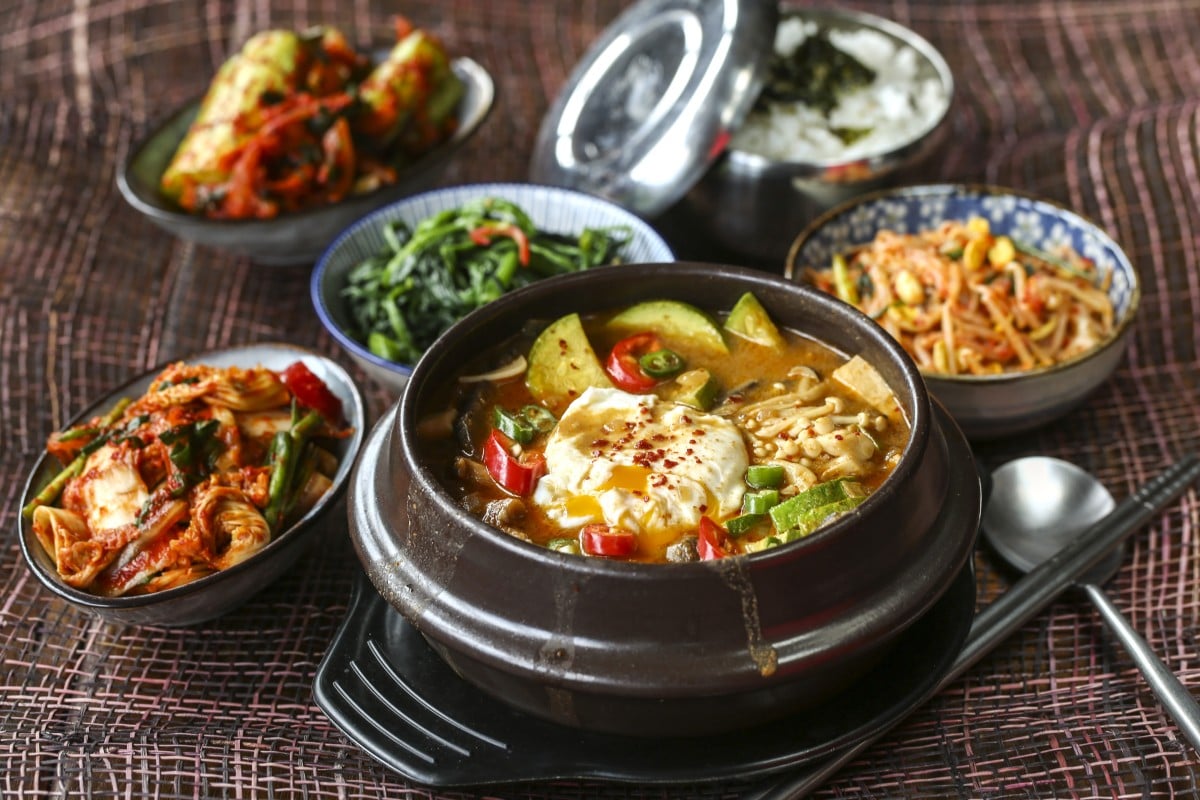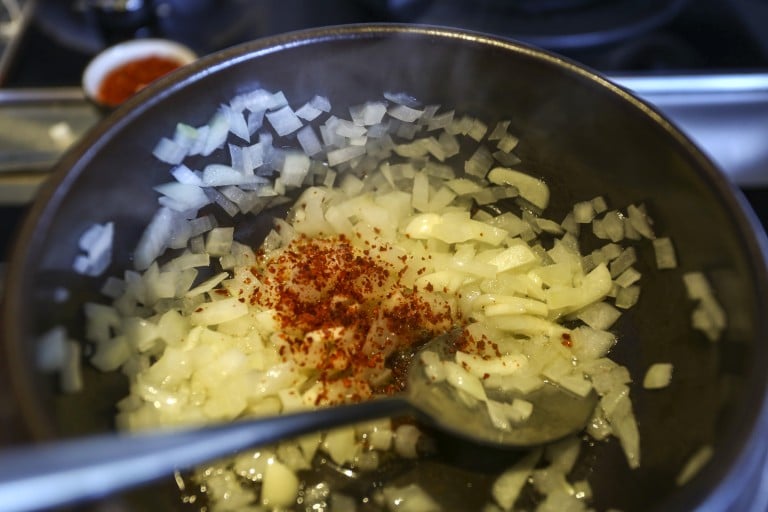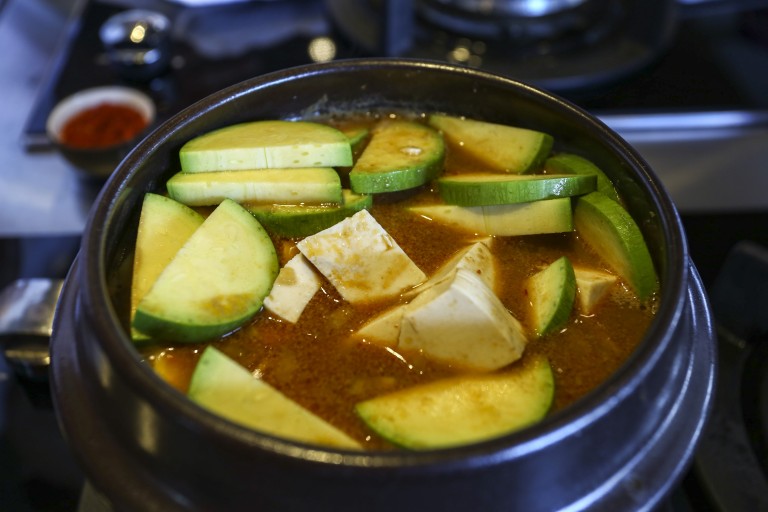
Although Korean cuisine is usually associated with meaty barbecue, that is just an occasional treat in South Korea, not something that is consumed every day. Korean food is actually very healthy because it incorporates a multitude of vegetables, many of which are fermented (and therefore great for digestion) and served as kimchi or as the banchan side dishes essential to Korean meals.
This hearty soup-stew uses Korean fermented soybean paste, doenjang, which is pungent and strongly flavoured. In restaurants, doenjang jjigae usually incorporates a small amount of meat and/or seafood, but it’s easy to make a vegan version. If you’re vegetarian, add an egg. This version takes about 10 minutes to cook, plus a couple of hours to soak the dried mushrooms. If it's easier for you, soak the mushrooms overnight in the fridge, so they're ready the next day whenever you want to cook the dish.
I use several types of mushrooms for extra umami; you can add or substitute other varieties to the shimeji and enoki called for in the recipe. Yuksu bags are the Korean equivalent of Japanese dashi bags, which make a flavourful instant broth when infused in hot water. Use either the Korean or Japanese bags, but check the ingredients’ label to make sure there’s no seafood or meat listed. Vegan yuksu/dashi bags are usually made with dried kelp and mushrooms. Doenjang, yuksu/dashi bags and gochugaru (Korean chilli flakes) can be bought from stores specialising in Korean ingredients.
Korean zucchini has pale green, smooth skin, and a mild taste. If you can’t find it, use Italian yellow squash instead.
This recipe serves one, but to serve more simply increase the quantities of the ingredients, or serve the jjigae as part of a vegetarian meal with other dishes, such as kimchi pancakes or mung bean pancakes (leave out the meat for that recipe), rice and banchan.
Rinse the dried shiitake mushrooms in cool water, then put them in a bowl and add 300ml (1¼ cup) of warm water. Leave to soak at room temperature for about two hours, until soft. Squeeze the water out of the mushrooms, reserving the soaking liquid. Remove and set aside the mushroom stems, then thinly slice the caps.
Pour the soaking liquid into a small saucepan, add the reserved mushroom stems, then bring to the boil over a medium flame. Turn off the heat, add the yuksu or dashi bag and leave to infuse while preparing the other ingredients.
Mince the onion and slice the garlic. Cut the bean curd into bite-size cubes. Quarter the Korean zucchini lengthways, then slice it thinly. Trim off and discard the woody lower part of the enoki mushroom stems. Break the enoki and shimeji mushrooms into small clumps. Slice the banana chilli on the diagonal into pieces about 3mm (⅛in) thick.

Over a medium-low flame, heat a pot (preferably a Korean stone pot) that holds about 750ml (3 cups) and add the sesame oil. Add the onion and garlic and cook until the onion starts to soften, stirring frequently. Sprinkle the chilli flakes into the pot and stir constantly for about 30 seconds.

Remove the mushroom stems and yuksu/dashi bag from the soaking liquid and pour 250ml (1 cup) of it into the pot, then add the doenjang. Bring to the boil, stirring often, making sure the doenjang is dissolved. Add the sliced shiitake mushroom caps, bean curd and zucchini and simmer until the squash starts to soften. Stir in the shimeji mushrooms and banana chilli and simmer for about two minutes. Add the enoki mushrooms and simmer until they start to soften.
If using, crack the egg into a small dish. Move the ingredients in the pot to the sides to create a deep crater and slide in the egg, making sure to not break the yolk. Simmer for a few minutes until the egg is softly set.
Mince the spring onion and scatter it over the stew. Serve immediately with steamed rice and banchan.